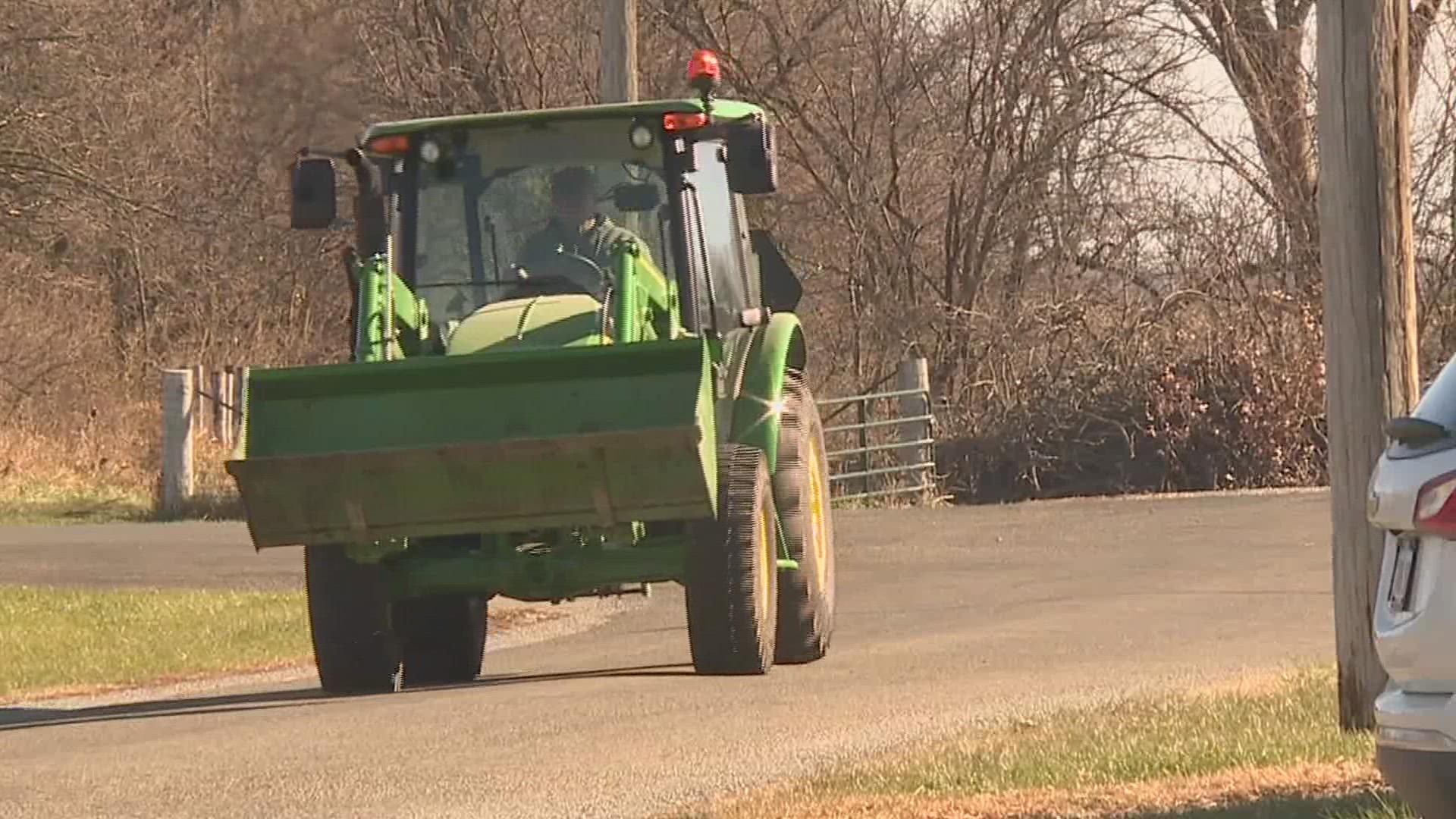LETTS, Iowa — Tucked away in Iowa's southeast corner lays the tiny town of Letts. The 2020 census recorded a population of only 363 people, and residents will tell you they don't have public water, a gas station or a grocery store.
The city council is doggedly working to further develop Letts, with hopes of the small town growing, but they say they need the government's help to do it.
That's where the United States Department of Agriculture comes in.
In mid-November, the USDA announced it would be awarding $222 million to rural communities across the country. Cities throughout Iowa and Illinois received a slice of the money, including Lee County, Iowa, where a $165k grant will buy six ambulances that will service roughly 36,000 people in the county's rural areas.
Over in Letts, two grants were awarded, and although both are considerably smaller than Lee County's, city officials say they'll have a huge impact.
Altogether the town was given $11,600 for two specific projects: a tractor and a generator.
The tractor, a brand-new, shiny-green John Deere, is a sorely-needed upgrade from the town's previous vehicle which was smaller and less powerful. It's used for all of Letts' public works needs, including hauling dirt, mowing grass and clearing away all of the snow in town.
"It's gonna make the job 100% easier," said Fred Failyer. "If it wasn't for that, it's no snow removal at all, period."
Failyer has lived in Letts for over half a century and now serves as one of the city's councilmen. Both he and his wife help out with the mowing, snow removal and maintenance around town. He says getting money for the new equipment was so necessary, since the community didn't have enough to buy the tractor themselves.
"We don't have the resources like other towns do," Failyer said. "That's one reason why we try to take care of what we've got. We don't take things for granted."
He says the brand new tractor will be used for, hopefully, two decades. And in a town with a large elderly population, having a tool to plow the roads for residents is critical. The previous tractor, he says, was too small to handle snow drifts and hills.
And while the town won $8,600 for that vehicle, the other $3,000 was given for a new generator.
Sewage in Letts is pumped just out of town to a series of settling ponds and lagoons. But when the power goes out, as often happens when severe weather rolls through the Iowa countryside, city councilmen only have about an hour to get the generator out at the lagoons up and running before all that sewage starts backing up into people's homes.
"You wouldn't believe how much relief it was on my mind," said Failyer, when asked how he felt when he found out the generator was going to be replaced. "That generator down there is the heart of the town."
And it was another badly-needed upgrade. The current generator sits out by the lagoon through all types of weather and is already over 42-years old. While the city has kept it running through routine maintenance and a little bit of TLC, replacement parts are getting increasingly harder to acquire.
It's the harsh reality of small-town life across America, as countless cities struggle to find funding and investments.
"Davenport, Muscatine, Cedar Rapids, they write the checks in a second. A small town couldn't have that much money in a decade. And so it just eliminates us," said Bill Kemp, another councilman. He says that while small towns often need development grants and money the most, they can be the most looked over.
He added that while Letts has a list of improvement projects it'd like to start tackling, the money just isn't there. And in a town of so few people already, another issue arises: many of the residents are older and live off of fixed incomes, making it a non-negotiable to raise taxes.
But Kemp argues that just because the town is small doesn't mean residents should have to worry about infrastructure issues such as unplowed roads and backed up sewers.
"Each person's important. Letts may be a small town, but small towns make up a majority of the state. So when you have all these small towns you can't afford to have them all die," he said. "Where're they gonna go?"
It's why grants from the USDA and beyond are so vital to keeping the vibrancy of so many small communities across the country.
Although Letts only received $11,600, Kemp and Failyer both look at it as progress.
"We're working very hard right now to try and make Letts a better town. A better place for families. We want to draw people in," said Kemp. "We're making slow progress. But we try."
As for Failyer, he doesn't view the grants as handouts, but rather a necessary tool for development.
"I've been out here for over 50 years and I'm pretty proud of this little town and I want to keep it thriving and open. Maybe even see it grow a little bit," he said. "You got to invest. And if you don't invest, you're not gonna grow."

